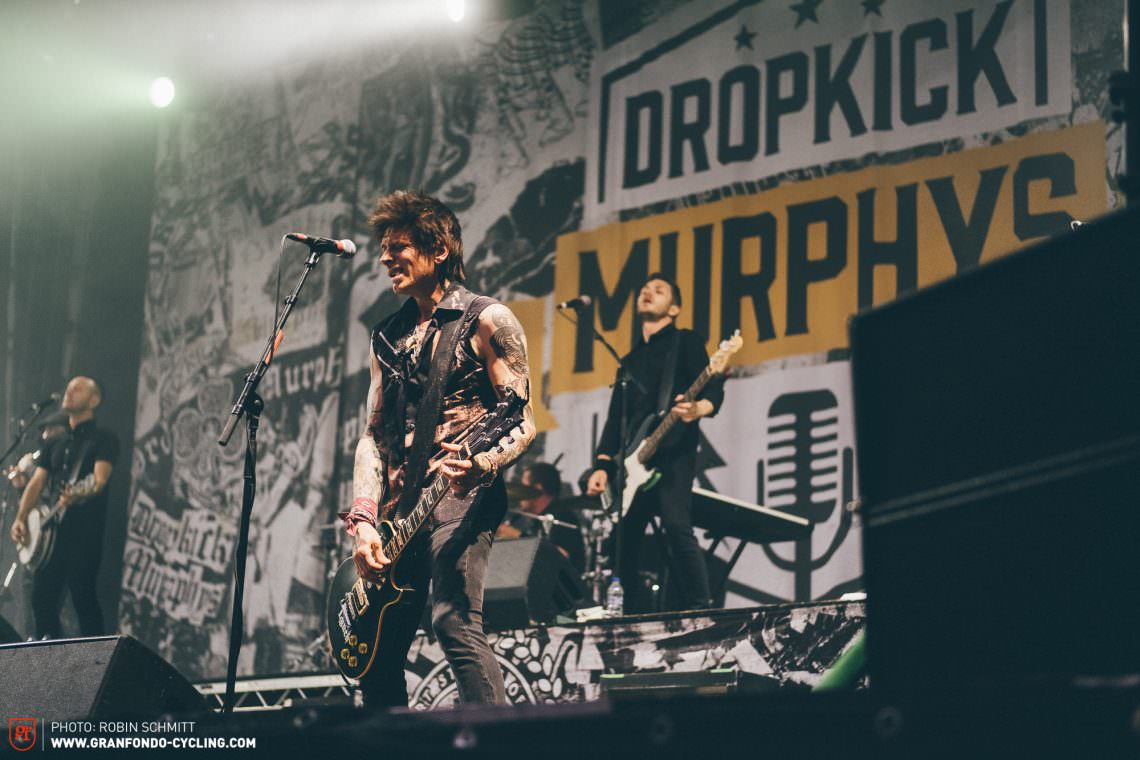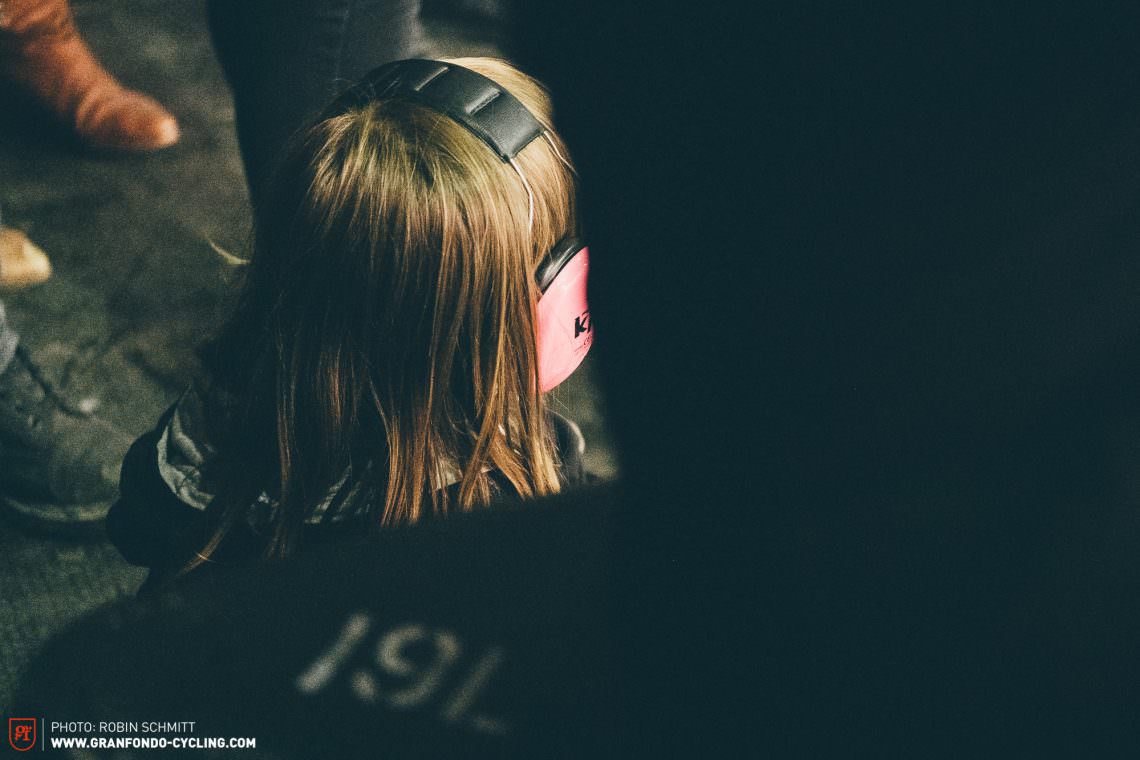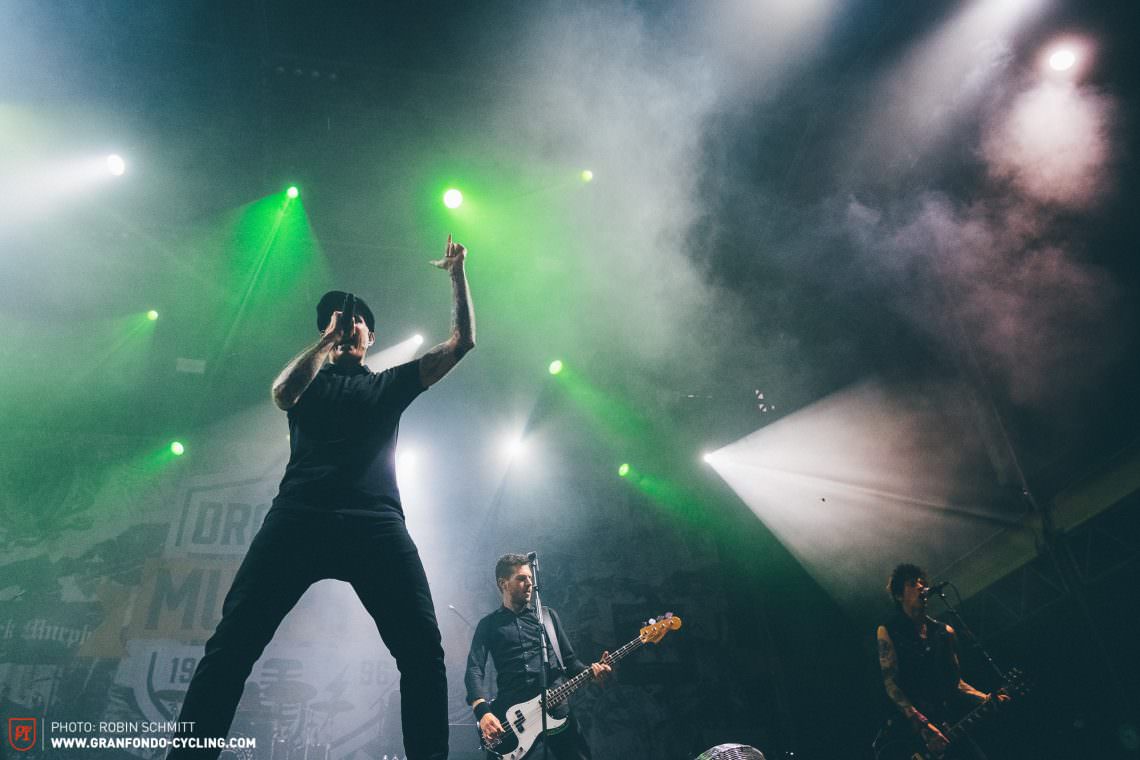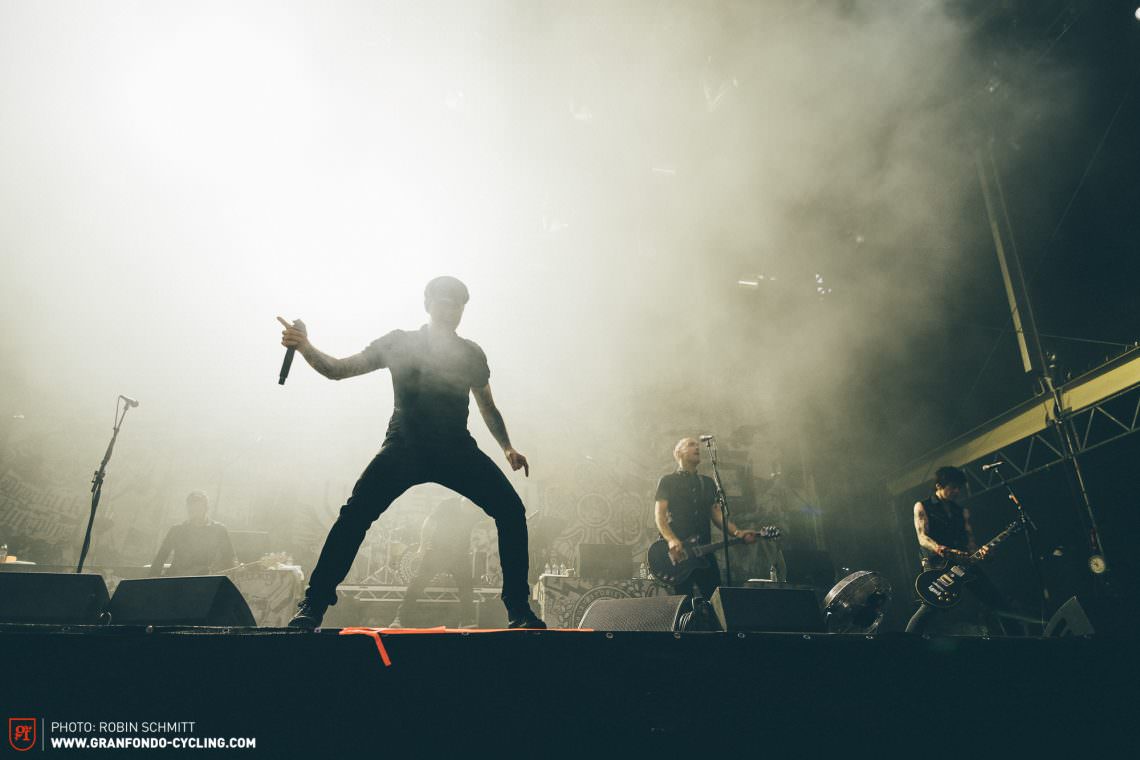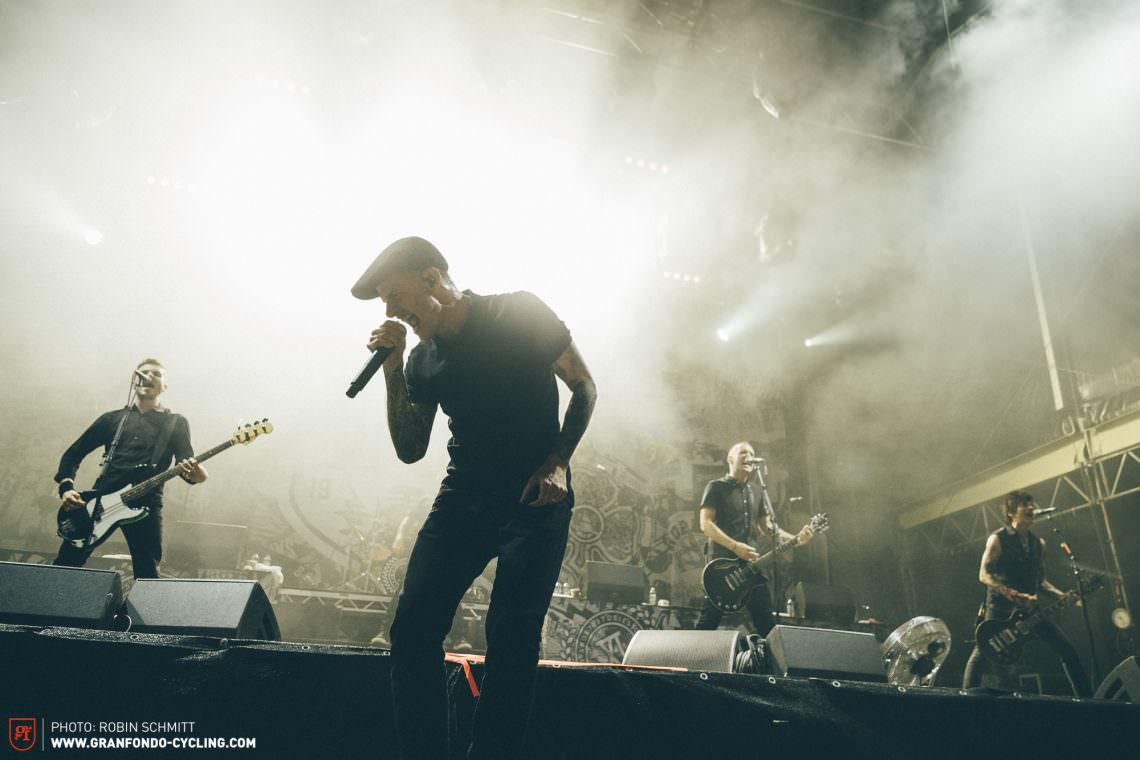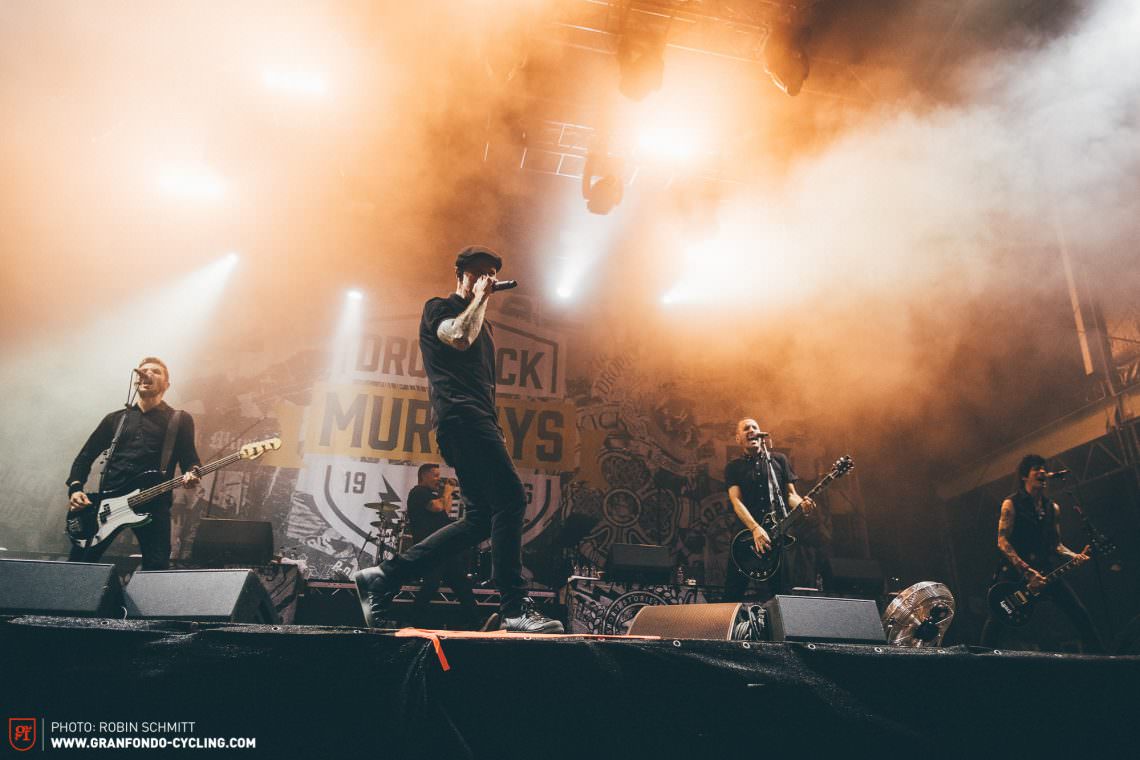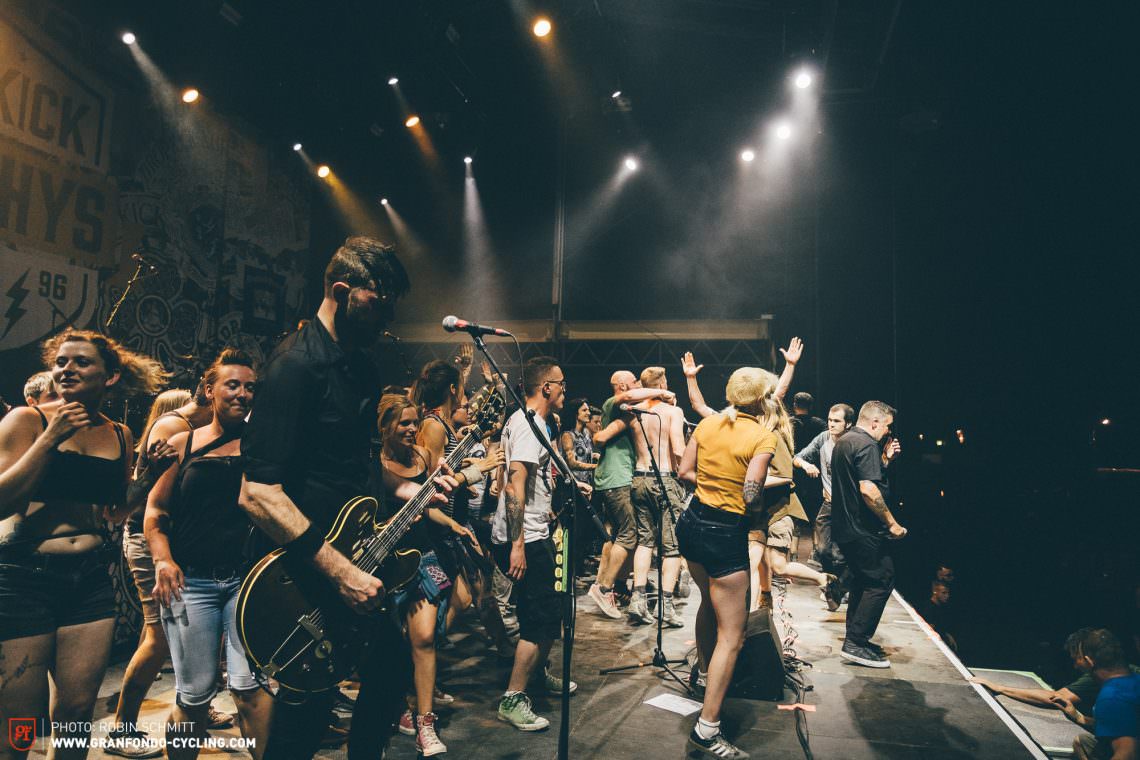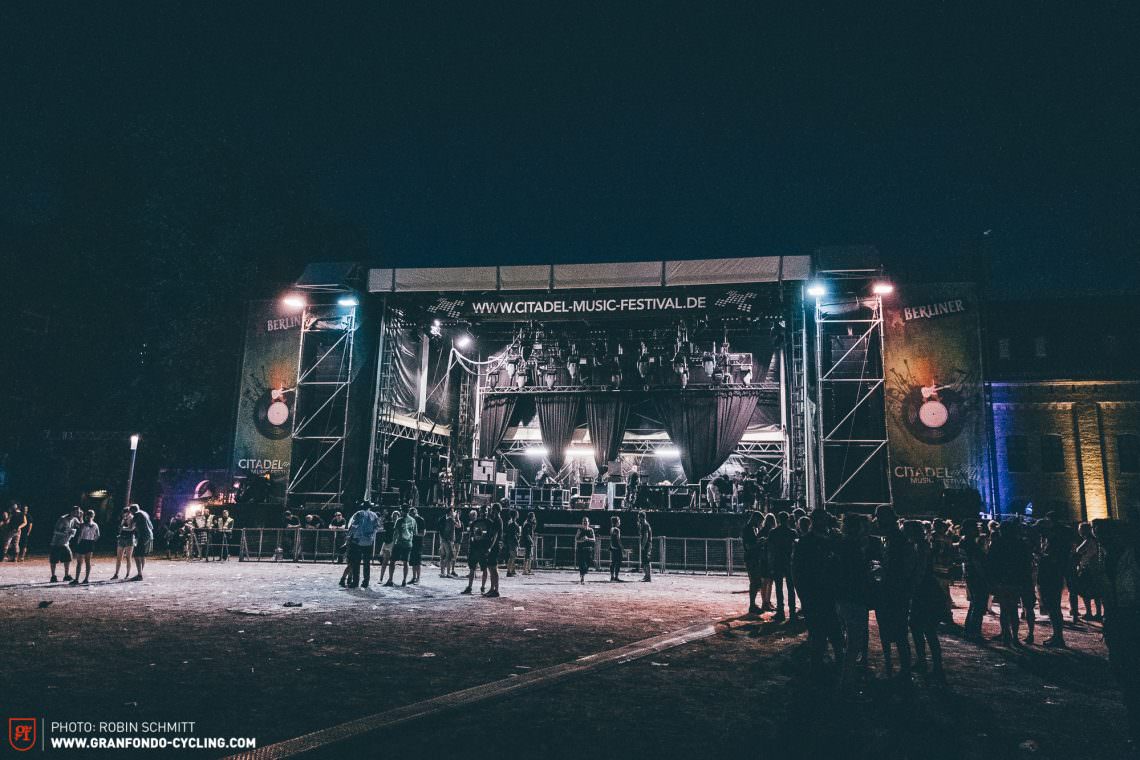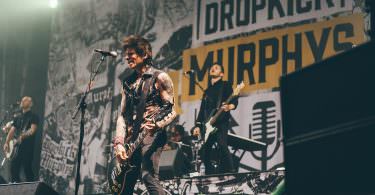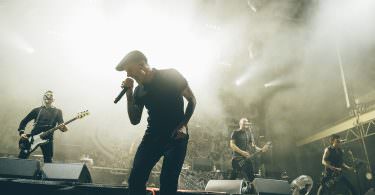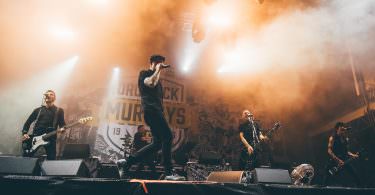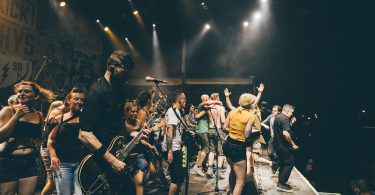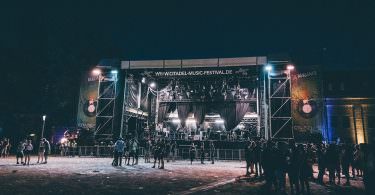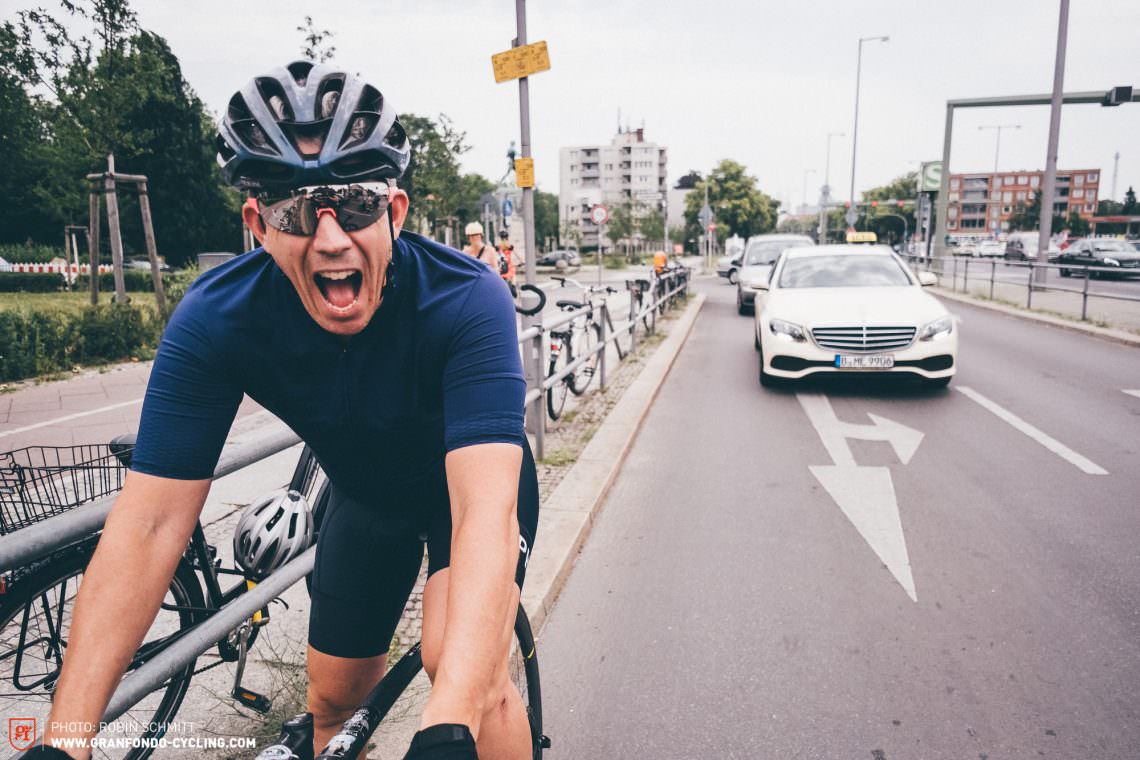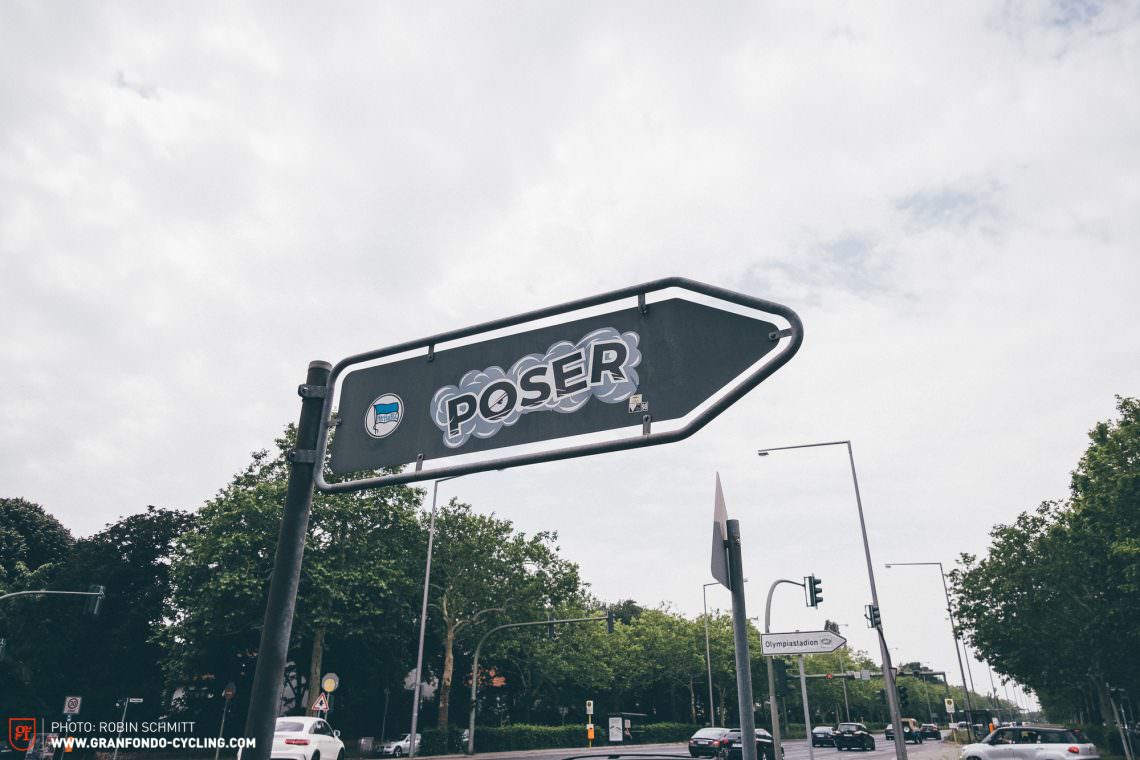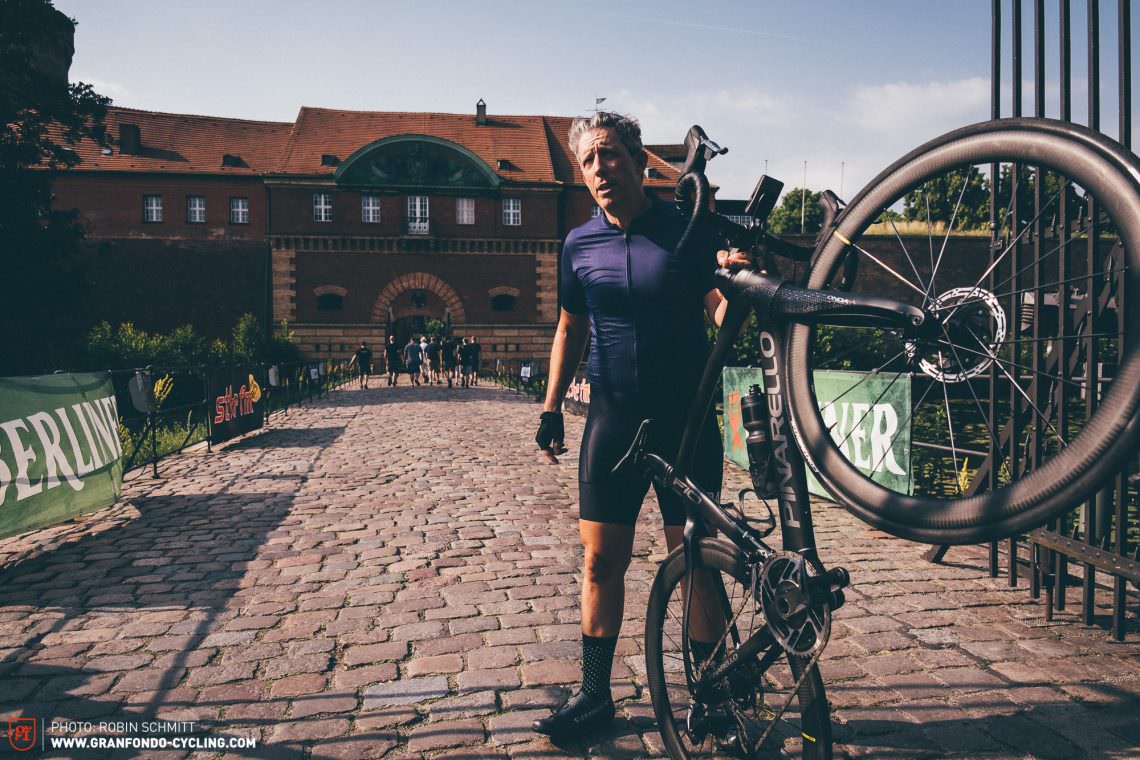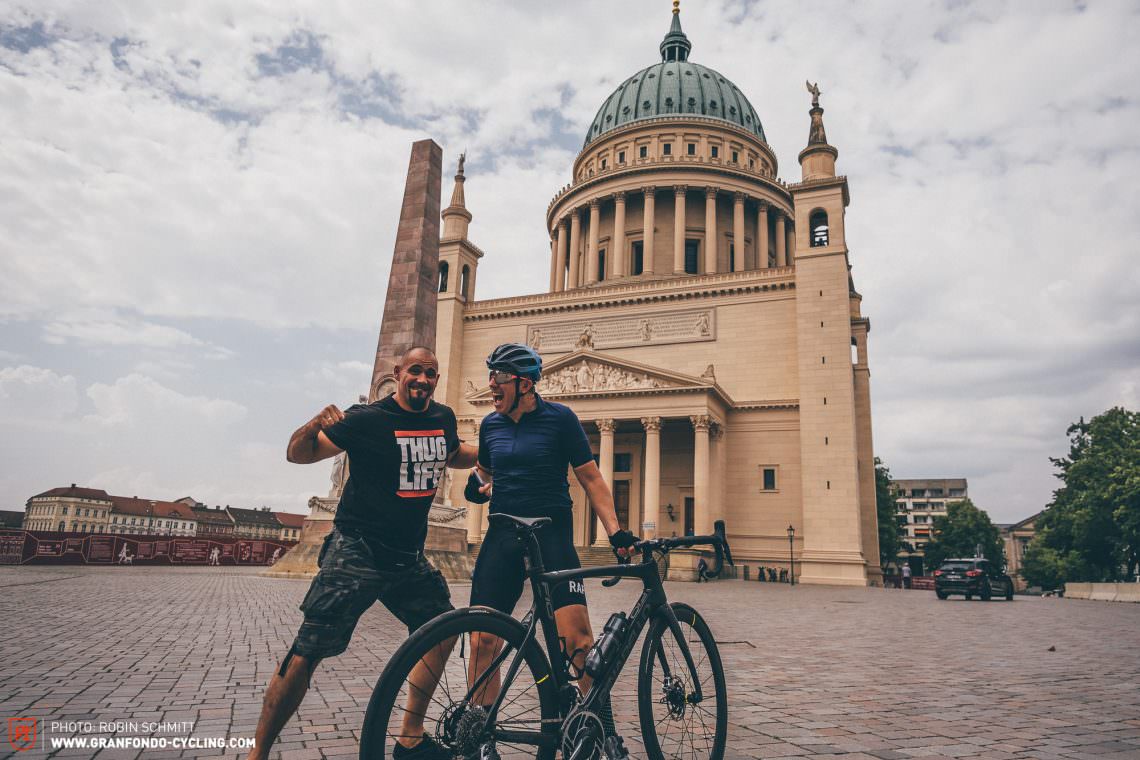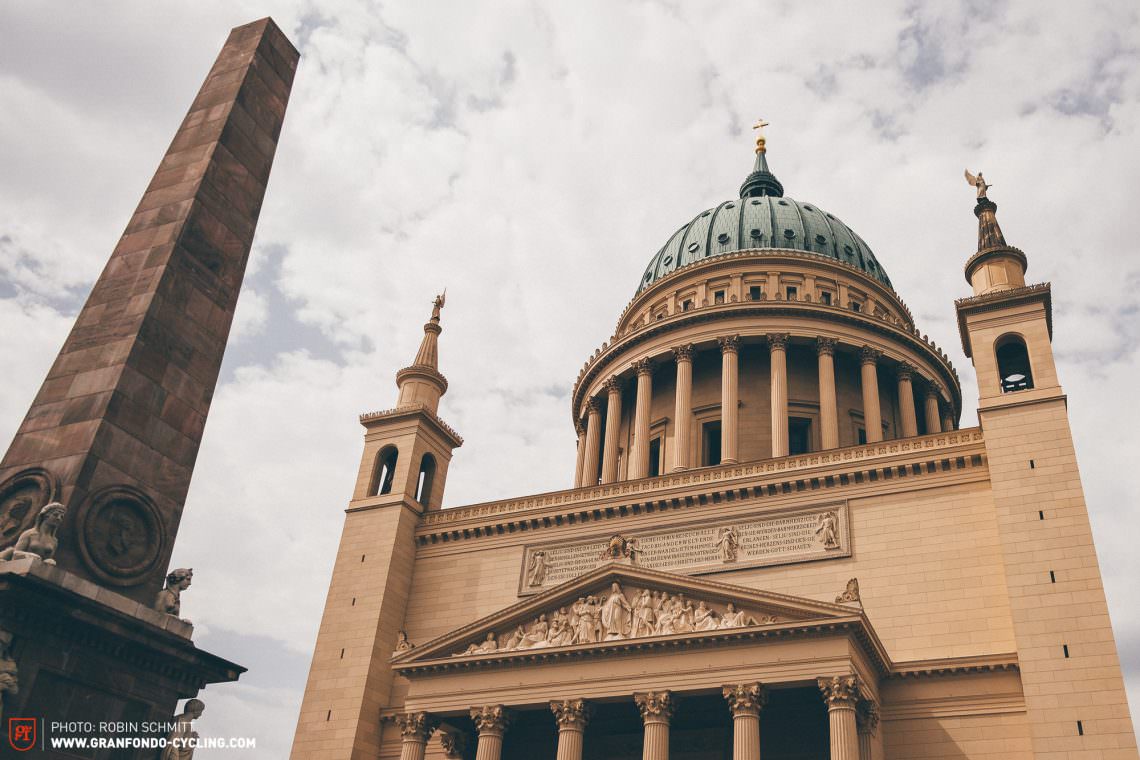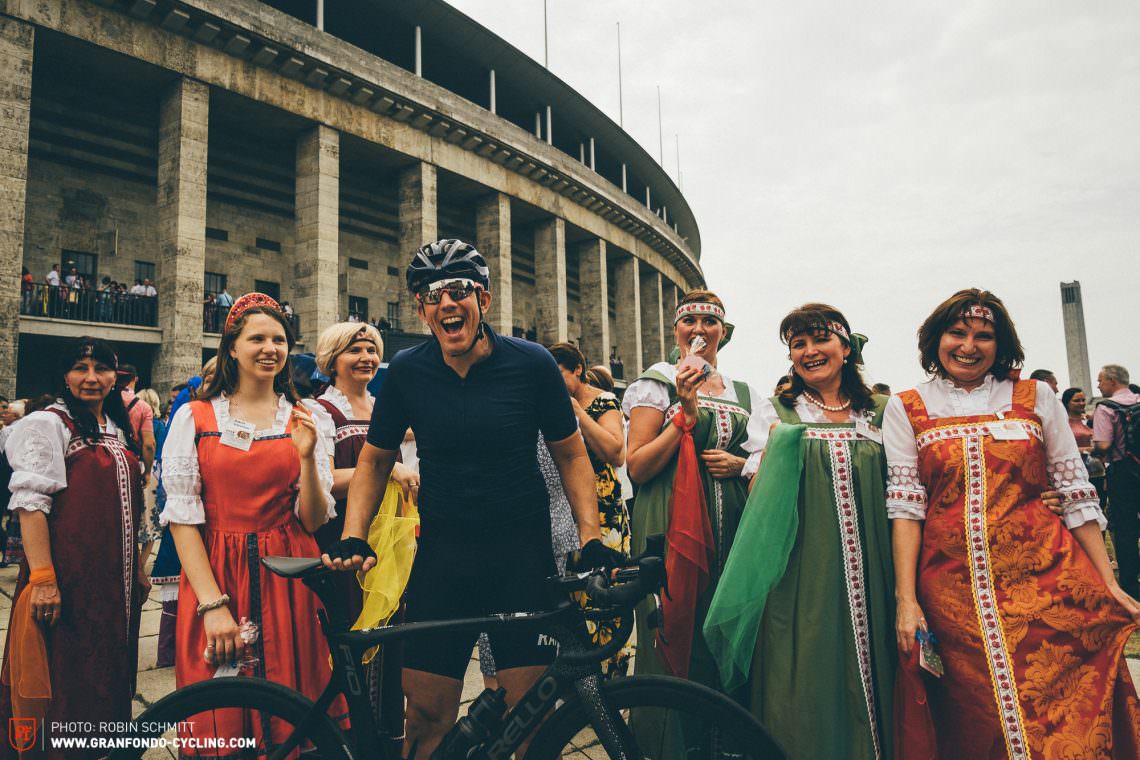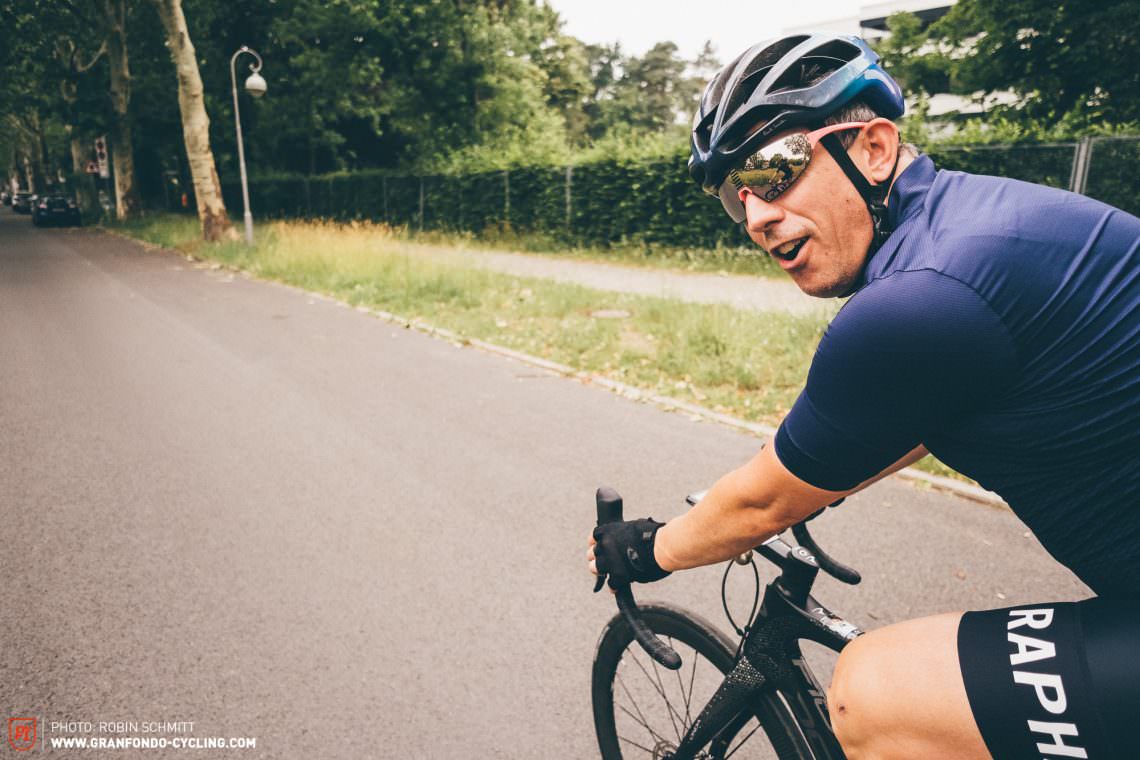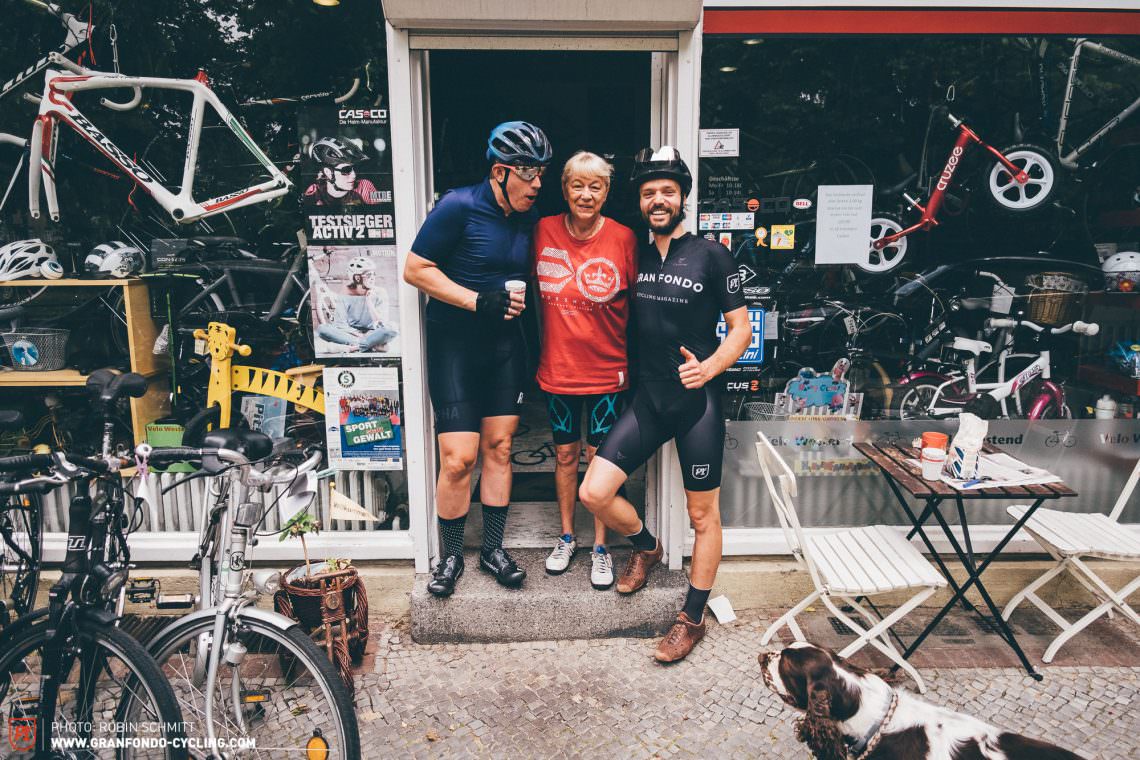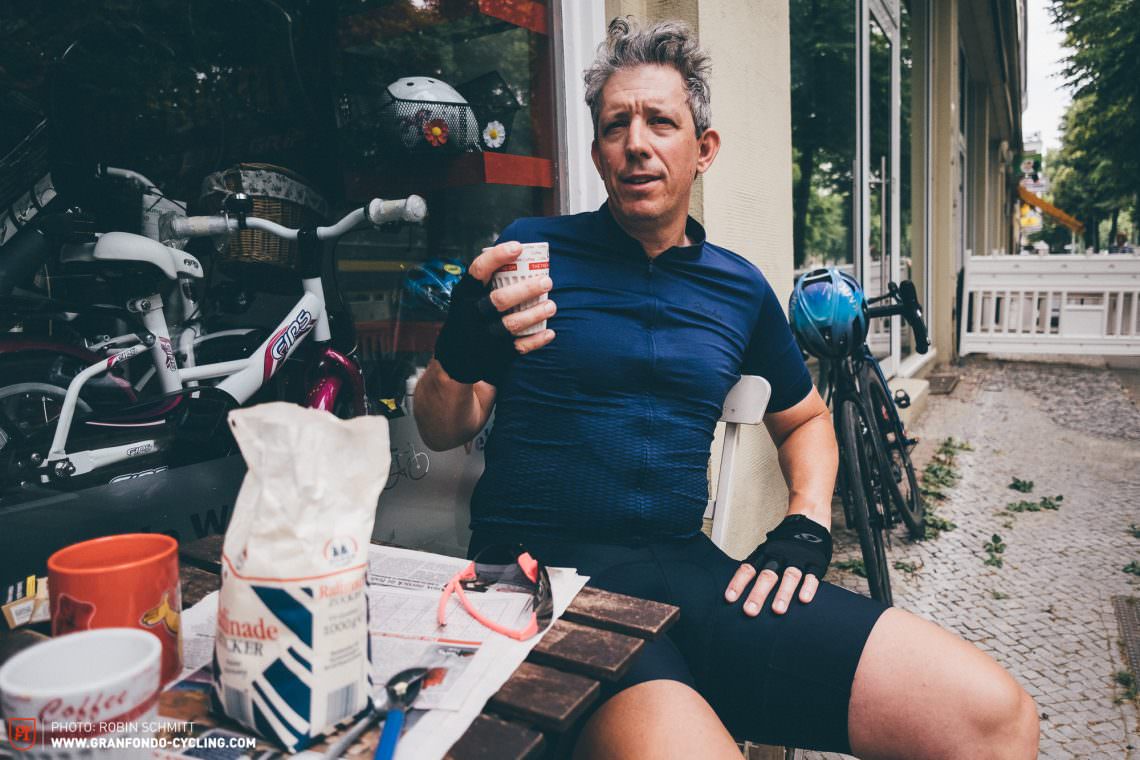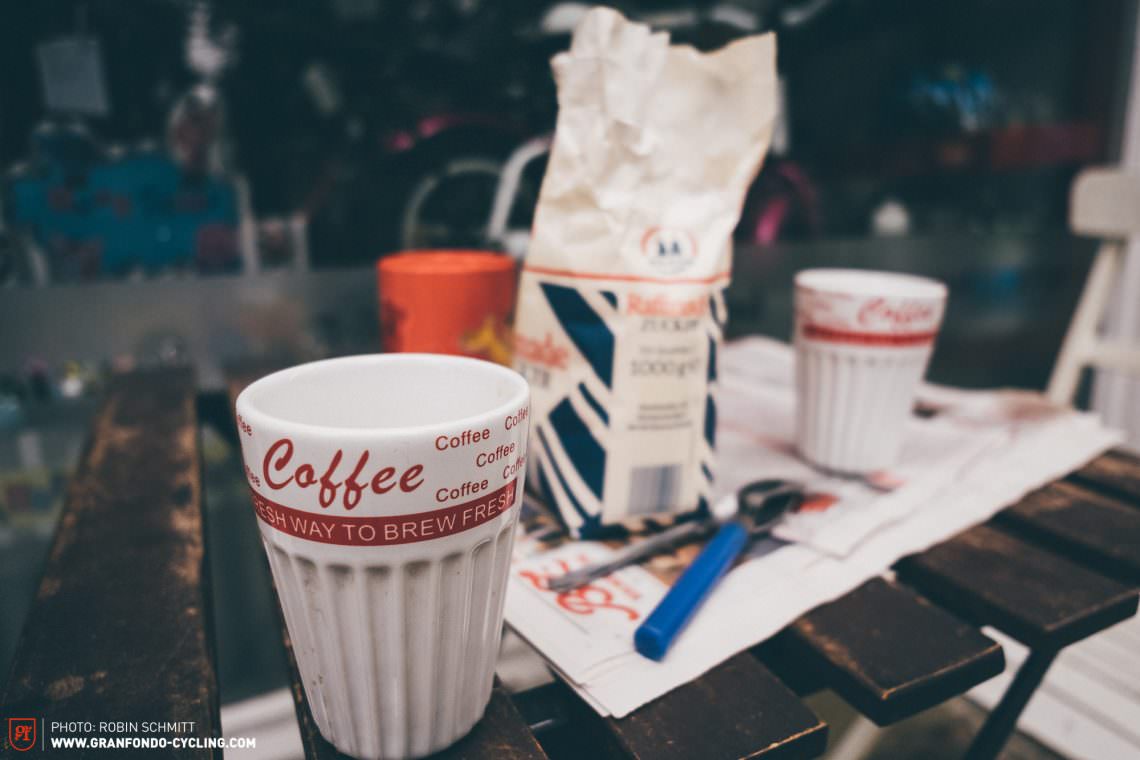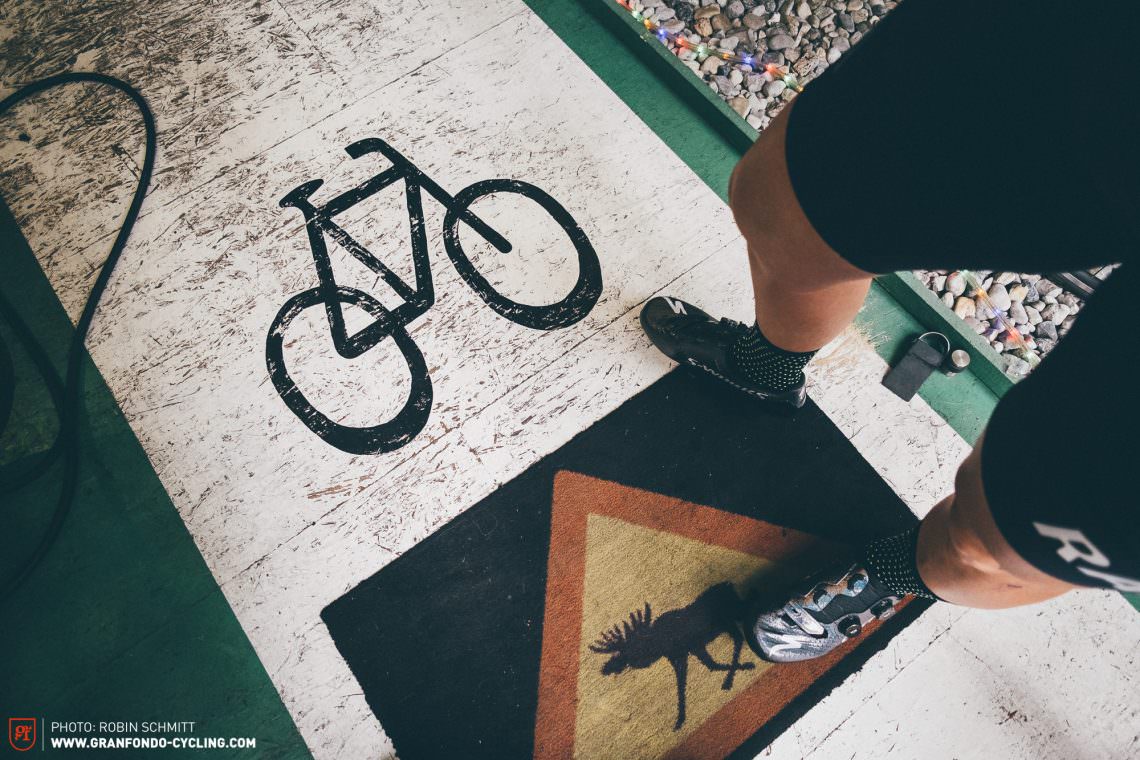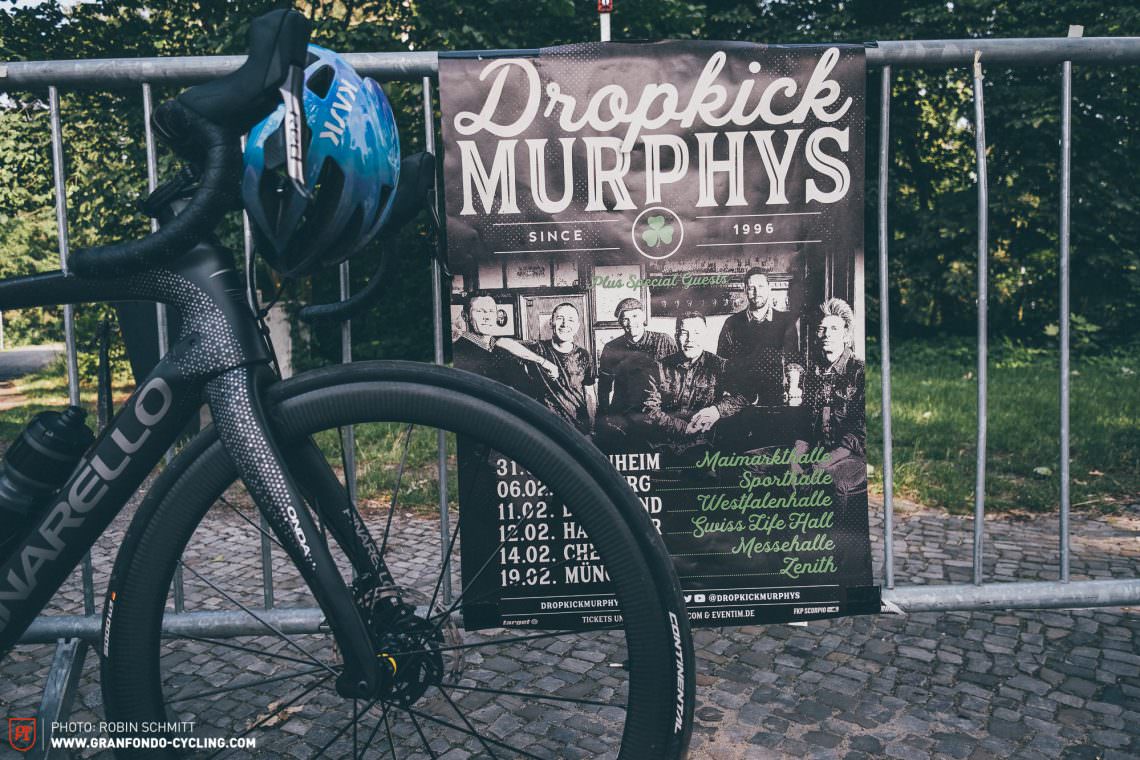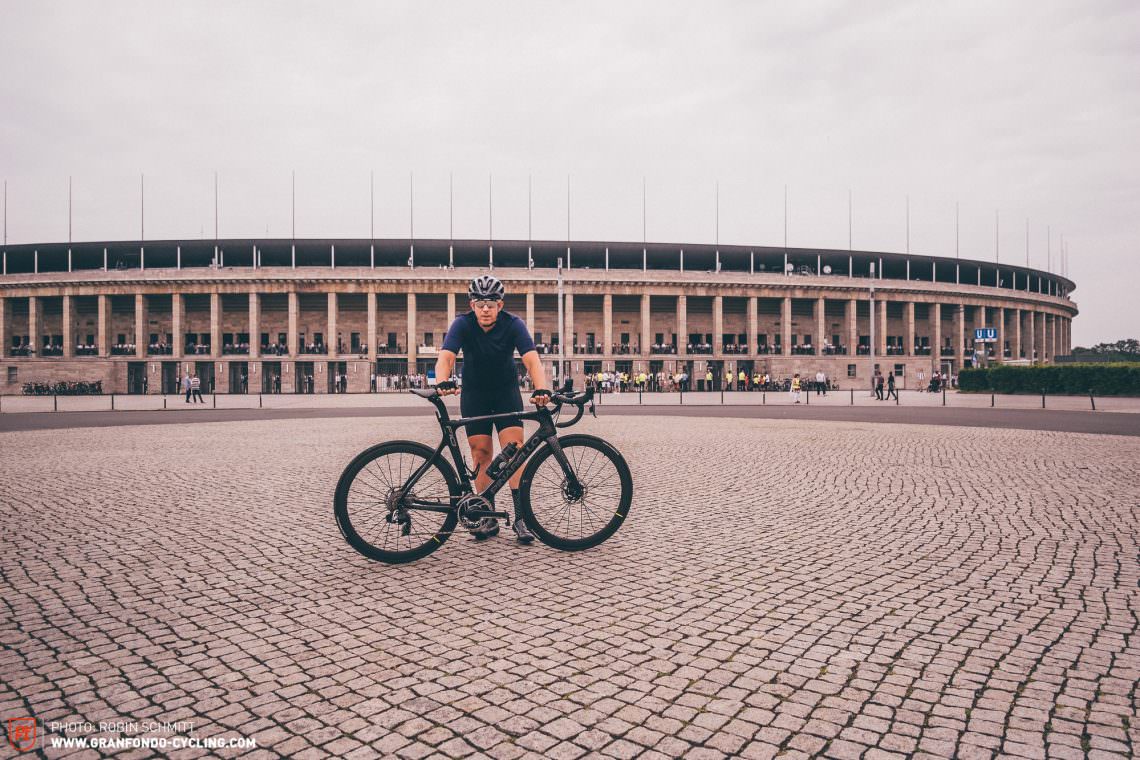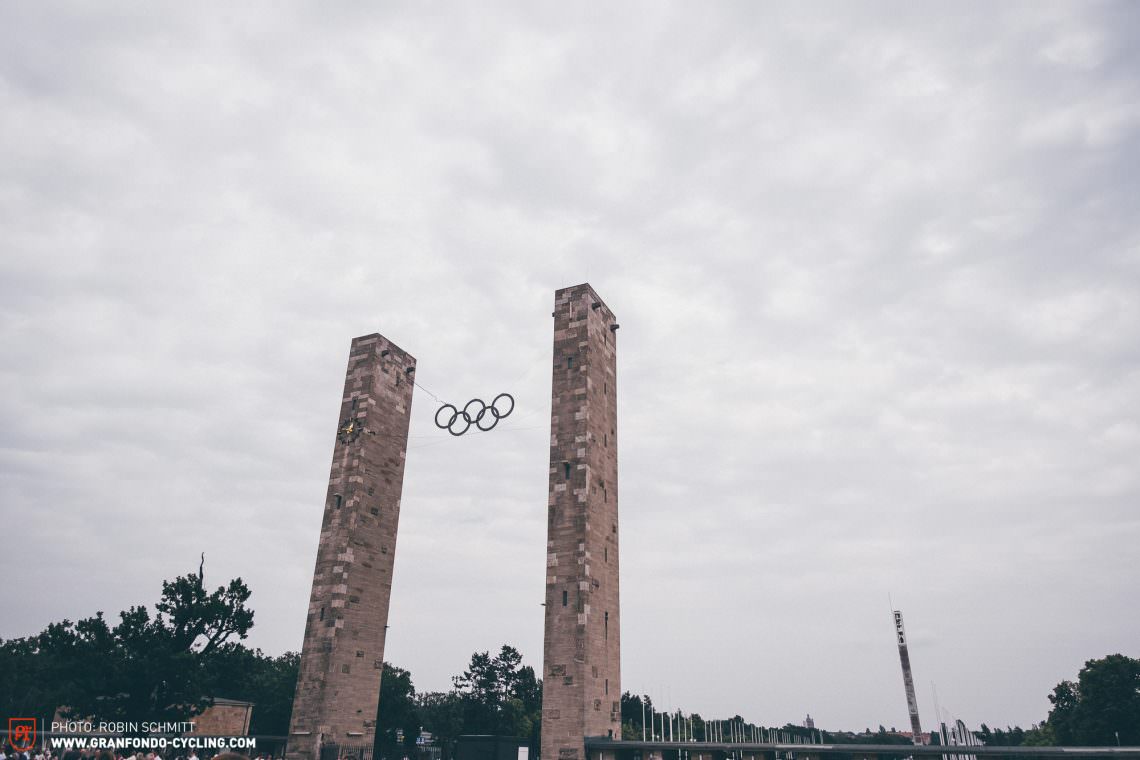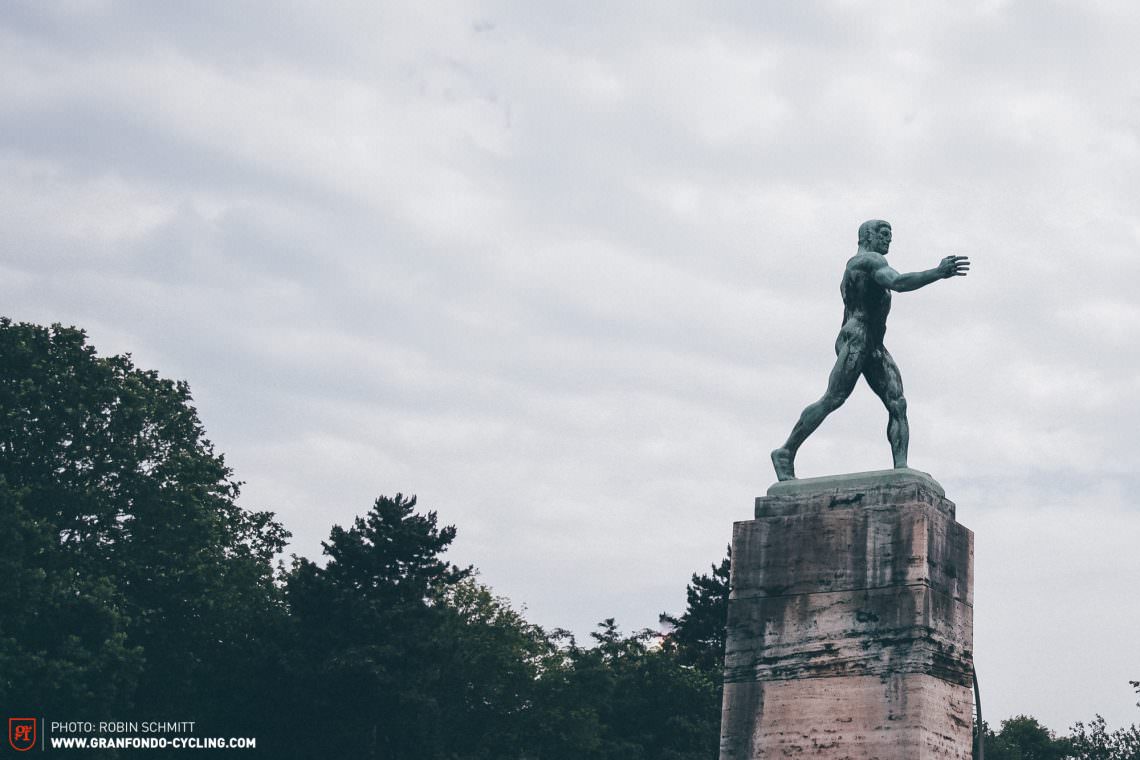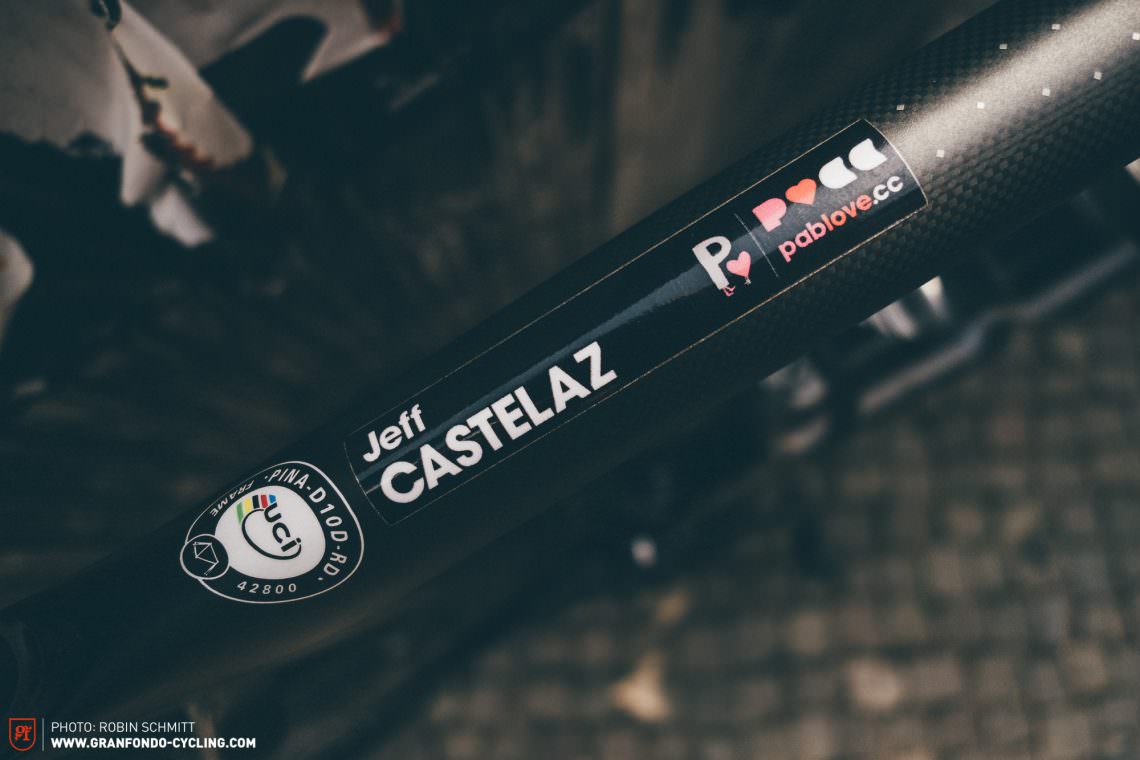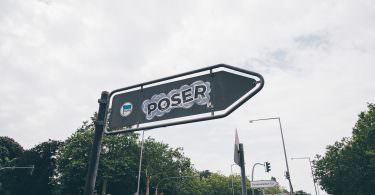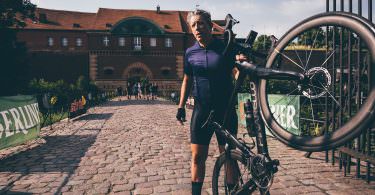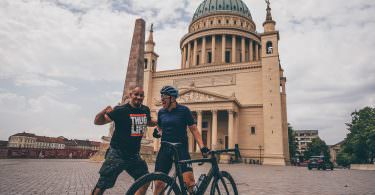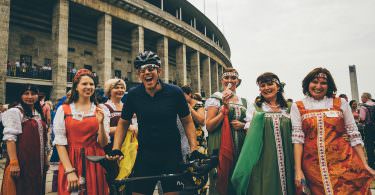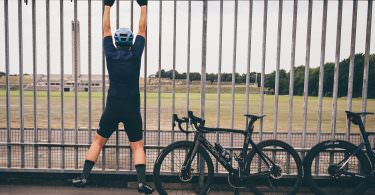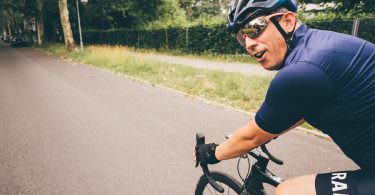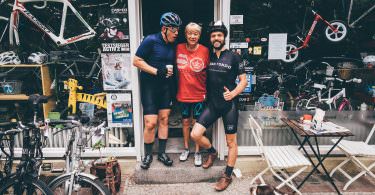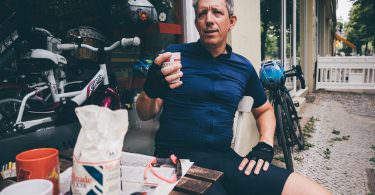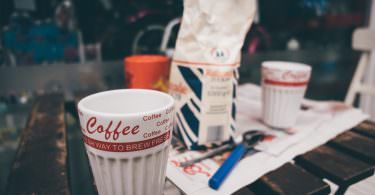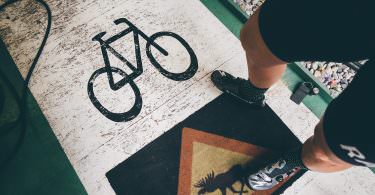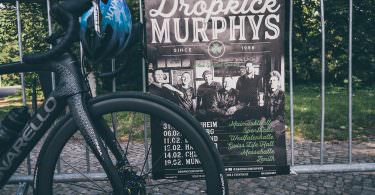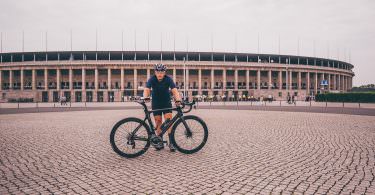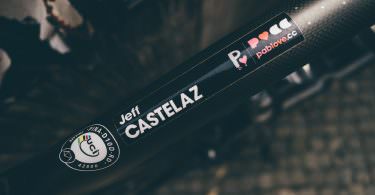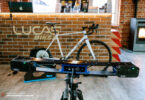What do pro road cyclists and tattooed rockstars have in common? What does it mean to be a dad and a rockstar? And how do you raise 26 million dollars for charity? We joined Dropkick Murphys on their European tour, rode bikes with their manager Jeff Castelaz, rocked out at their gigs, and learned what really matters in life.
Dropkick Murphys at Austria’s Nova Rock Festival.
Saturday, 10.30 am: Two Nightliner tour buses and three trucks turn onto a side road in Berlin’s Spandau neighbourhood. The 25-strong Dropkick Murphys crew have been on the road for nine hours, having played a 60,000 strong audience at the Nova Rock Festival in the Austrian town of Nickelsdorf the previous evening. Tonight’s gig is on a much smaller scale: an intimate affair at the impressive Spandau Citadel. We’ve arranged to meet the manager Jeff Castelaz for a leisurely ride, spend some time exploring the area and help him shake off his jetlag (from his journey from Los Angeles two days earlier). It should also give him some much-needed fresh air and breathing space before the next string of major gigs.
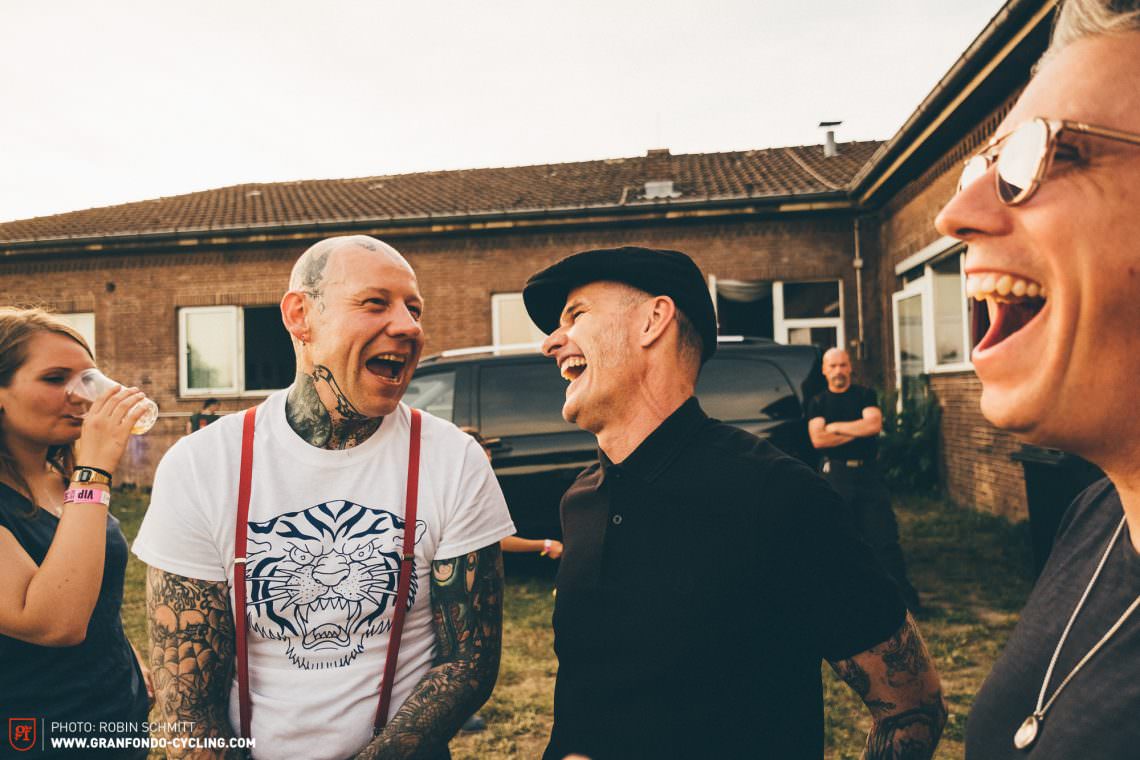
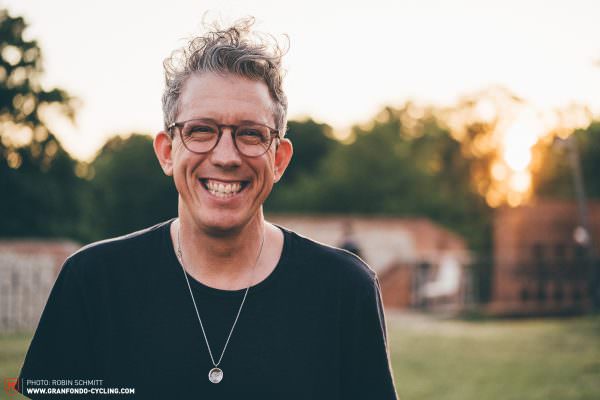
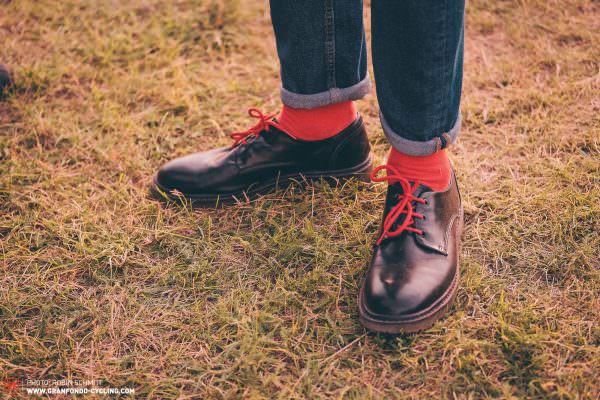
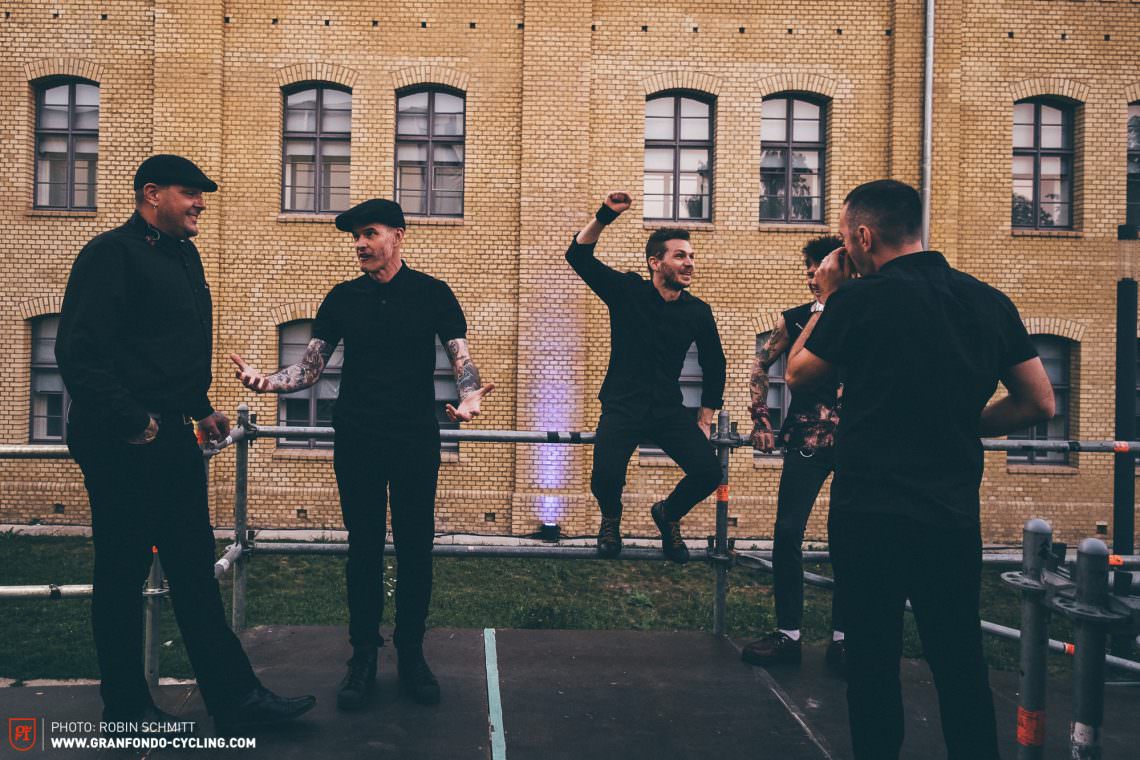
Those familiar with Dropkick Murphys probably associate them with one or all of the following: Celtic rock, punk rock, drugs, alcohol, and mad tour bus parties. But while support acts and young musicians still like to live up to the rock and roll clichés, Dropkick Murphys have grown up and out of that phase. The Irish-American folk-punk band started playing live in 1996 in Quincy, Massachusetts, and have seen a lot in their time. Some of the band members are now vegan, and it’s a rare sight to see any of them drinking alcohol these days.
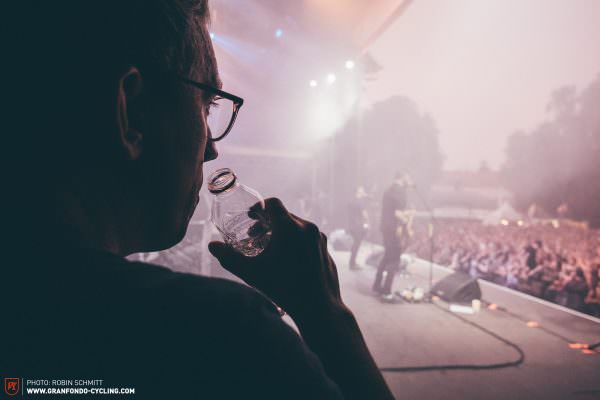
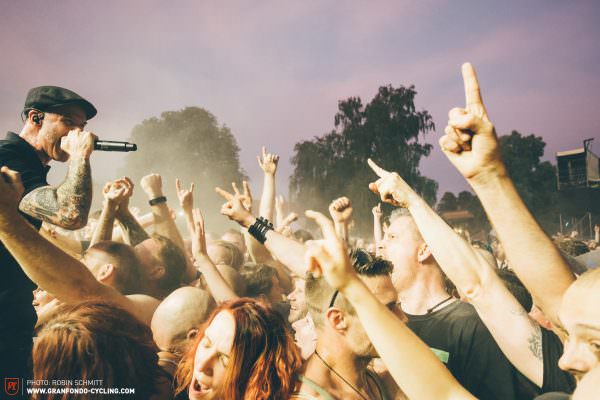

Guitarist James Lynch, now 39, eats a strictly raw, plant-based diet and claims to have never felt so healthy. Having been in the band for almost half his life (19 years and counting), he opened up to us about being what he calls a “drug addict, alcoholic divorcee.” He is well versed in the dark places that you can end up when you don’t listen to what your body is telling you – no matter what line of work you’re in. And even with dark sunglasses shielding his eyes, it’s impossible to ignore the honesty in his words.
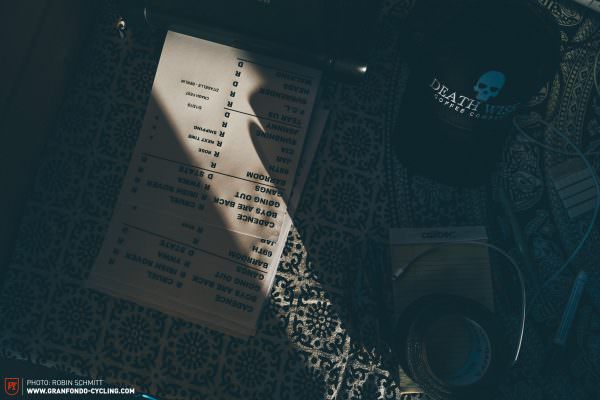
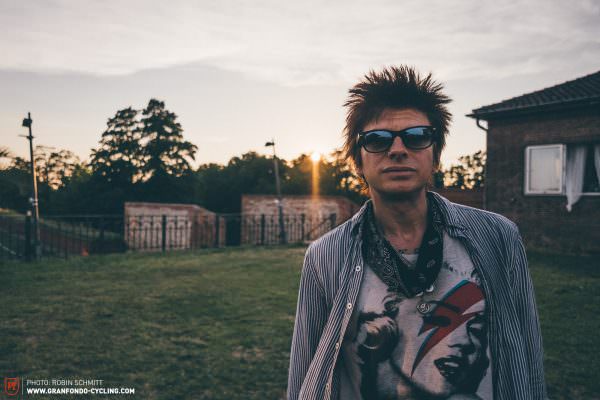
Successful bands have a hectic schedule with tour dates across the world. “It’s a bit like the Tour de France” explains Castelaz, comparing the band and crew to a World Tour team. “Everything happens really intensely on a tour, and you’re travelling across the whole continent with a gig basically every day and very few rest days.” The band members are so invested in their performances that they’re not dissimilar to pro endurance athletes. Not just because they’ve got to perform at sweltering summer festivals, where it’s often over 30° Celsius, but also because at times, there are many other challenges to bear. Imagine living your family life through Facetime for a month or celebrating Father’s Day an ocean away from your kids. Then there are new tracks to be created, a stage performance to be spruced up, not to mention a month spent in achingly close proximity to the rest of the band and crew on the tour bus without any space to truly escape. It’s no wonder things sometimes start to unravel. And the gigs? The crowd want a show, so that’s what you’ll give them. While that’s empowering, it can also be draining. As such, maybe it’s not so surprising that rockstars do yoga, try to eat well, control their fluid intake and go running to stay in shape – it’s actually quite logical.
Don’t be surprised that rockstars do yoga, eat well, do sport, and meticulously monitor their fluid intake.
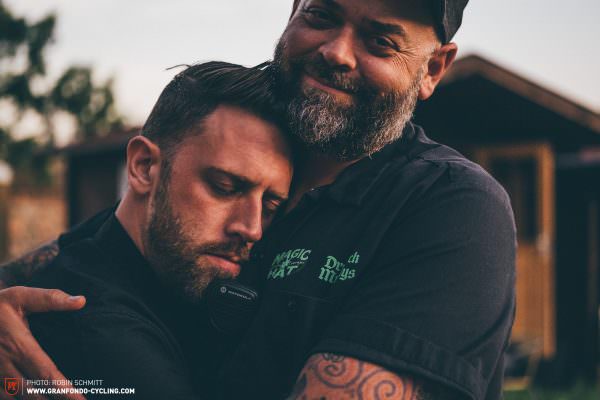
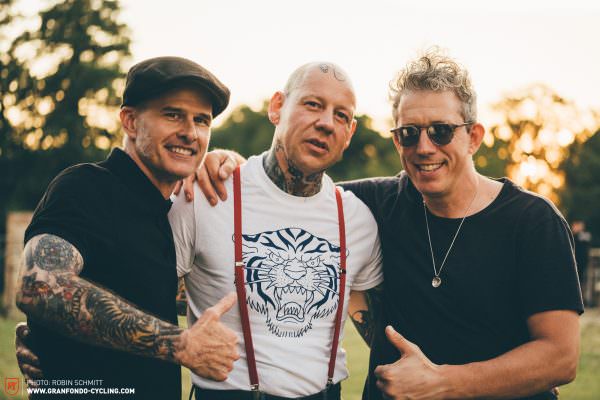
“Family is all that really matters” says frontman Al Barr. Judging by his Instagram feed, half of which attests to how much he’s missing his wife and kids, you realise that this is very true for him, especially considering that in his 20 years as the lead singer of Dropkick Murphys he’s probably spent more time away from his wife than by her side. For manager Jeff Castelaz, the main priority for him and the crew are to look after and support the band. Oftentimes, it’s just providing an ear to listen, someone that not only understands the industry but more importantly the pressures it puts on the band members, both creatively and personally. Managers aren’t just managers here. They’re friends.
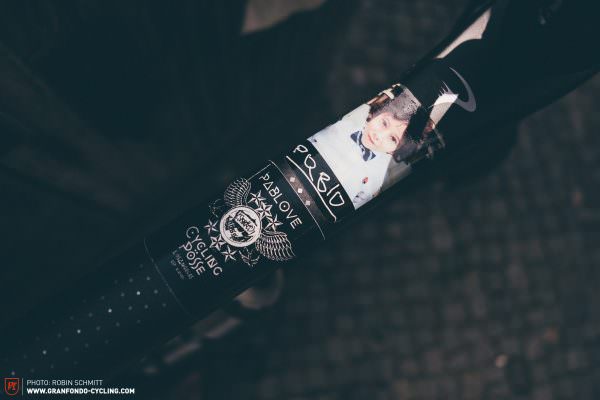
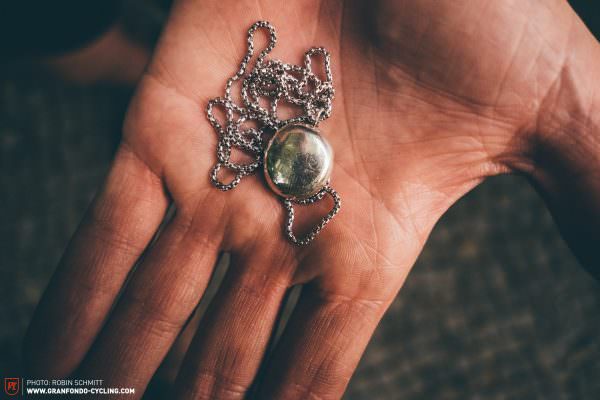
But it’s not only the band members that have their challenges to bear. Just like any other human being on the planet, Jeff has his own issues and problems to face and deal with. We stop for a coffee and he recounts the moving story of his six year-old son’s tragic death after being treated for a bilateral Wilms’ Tumor over a period of 13 months. In the period after his death, Jeff rode over 3,500 miles from St Augustine in Florida to Los Angeles in 30 days. What began as a solo voyage to overcome his grief, turned into something much bigger with friends and acquaintances joining him on the road, people wanting to share their own stories and even Lance Armstrong riding a section of the route with him. This led to Jeff to co-found the Pablove Foundation. The foundation both supports pediatric cancer research and runs the Pablove Shutterbugs creative programme that offers a creative outlet for kids suffering from cancer through music and photography. Since 2010, the foundation has raised 26 million dollars and funded more than 3 million dollars in research, in addition to funding its Pablove Shutterbugs photography program. Its 11th charity ride takes place this September, riding a more modest route from San Francisco to Los Angeles.
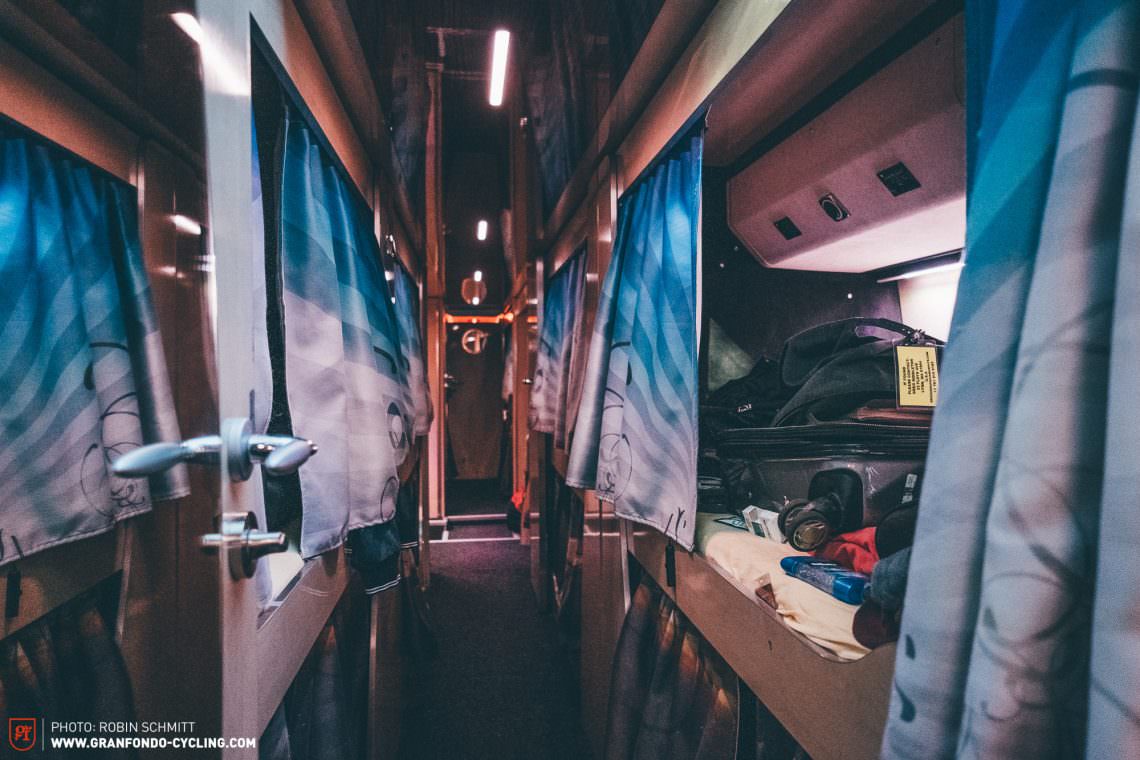
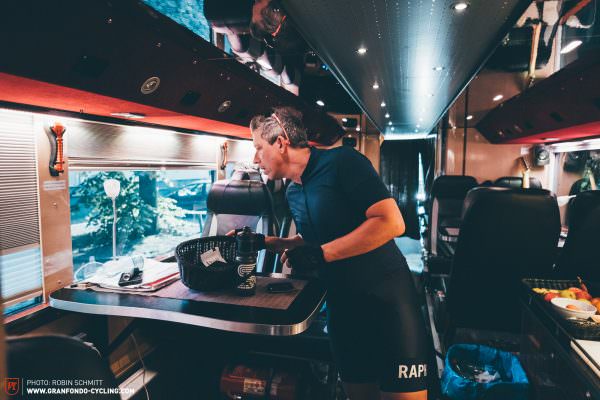
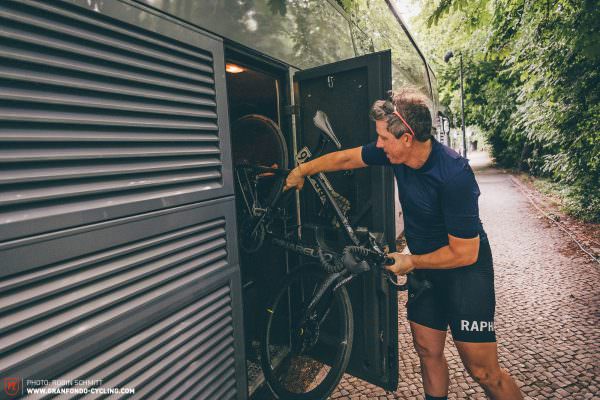
When you’re talking to him, you quickly notice that Jeff is someone that focuses on the positives. He wants every kid to have the opportunity to be normal and do regular things. Things like having the option to pursue a passion or a hobby and gain confidence. The way he approaches our ride reflects this same openness. We had a route planned, but we were open to spontaneity – detours down enticing roads, chance encounters with people on the roadside. We followed a direction, but not to a particular destination. “The road provides – if you just keep pedalling you’ll find coffee or a nice person.” His broad grin and welcoming nature that pervades his whole being meant that we ended up speaking to complete strangers and hearing their stories. Forget closed, narrow-minded people – we were stunned by the candidness we encountered. We ended up at a Jehovah’s Witnesses’ meeting, got a free coffee in a bike shop (that didn’t even have a café) and lunched at an Eastern European’s Italian restaurant in Potsdam. The route was irrelevant, but it confirmed a number of things to us. No matter which group or tribe you belong to, whatever has happened to you previously, or whatever you’ve strived to achieve, the only thing that really counts is how you feel in this very moment and what action you’re taking right now.
Back at the Spandau Citadel, I spot a quote by the Russian artist Marianne von Werefkin. “I love the things which are not.” Easy to interpret in many ways, but I like to think of it as how loving things that haven’t yet happened demonstrates a confidence in the future and an excitement at the opportunities that can happen if you’re willing to open yourself and your creative energy up to them. At every moment in time, we’re holding the pen that writes our story. That’s exactly what we did and experienced on this day.
You’re the fighter you’ve got the fire
The spirit of a warrior, the champion’s heart
You fight for your life because the fighter never quits
You make the most of the hand you’re dealt
Because the quitter never wins
No!
Warrior’s Code, Dropkick Murphys
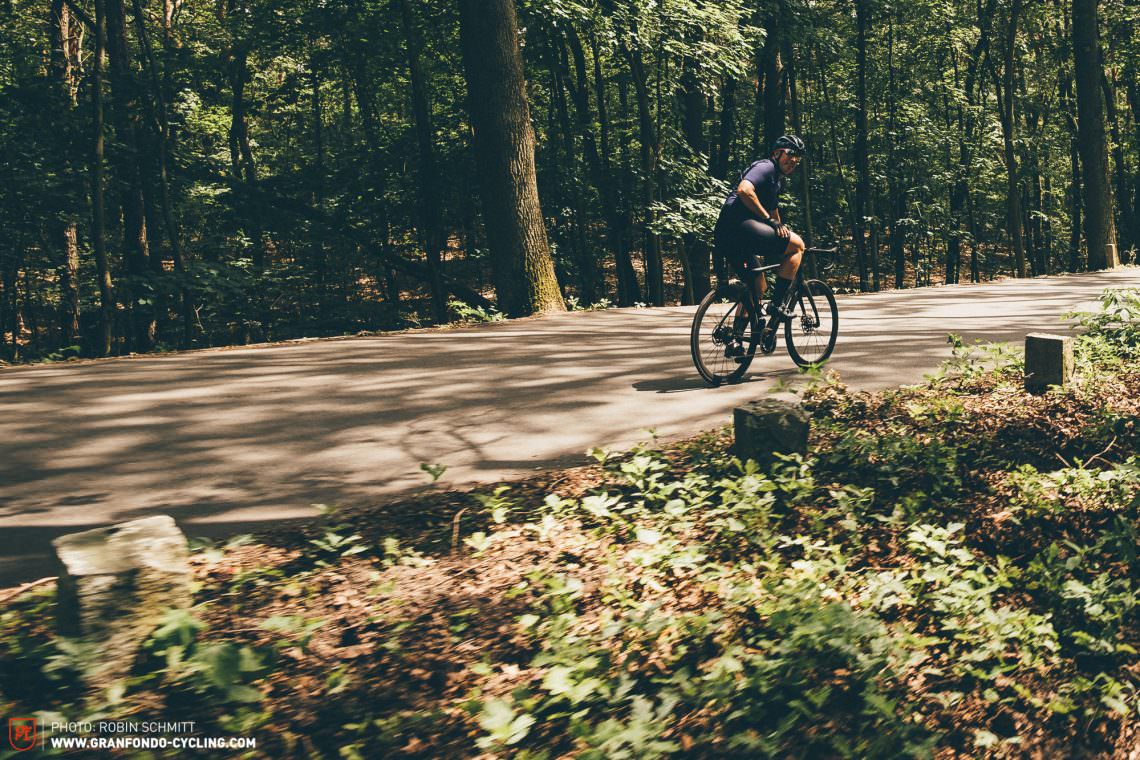
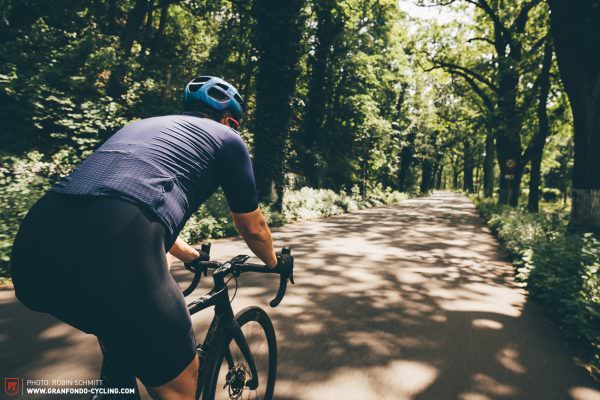
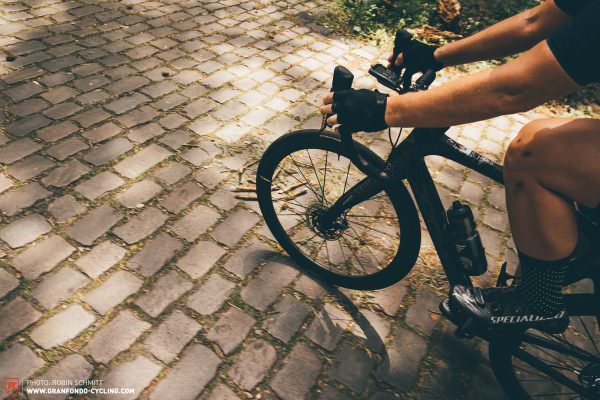
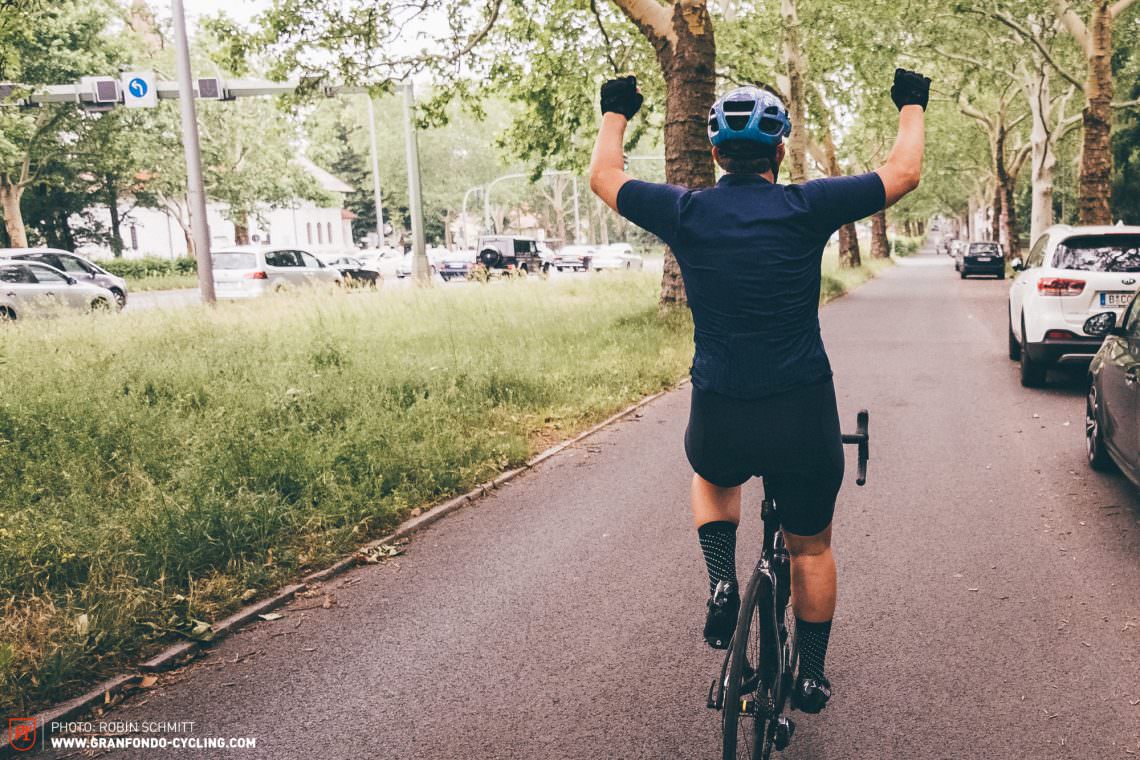
Jeff is a fighter. After Pablo’s death, he went on a 10-year crusade to unite people for the cause. The foundation has gone on to become something that’s so much bigger than him.
Moments before the gig starts we meet a British artist with two guitars freshly signed by the Dropkick Murphys. They’re now up for auction to raise money for cancer research. Perhaps it’s a realization that gets clearer as you get more successful, but it dawns on you that success isn’t that elusive key to happiness. Success isn’t always the means to the end. It doesn’t automatically satisfy you in the long term. You learn that it’s the little things in life, like love and sharing, that really matter. Give, and you’ll get more back than you think. Whether you’re a rockstar, a banker, or a parent, this is the way of living.
For more information of the Pablove Foundation visit pablove.org
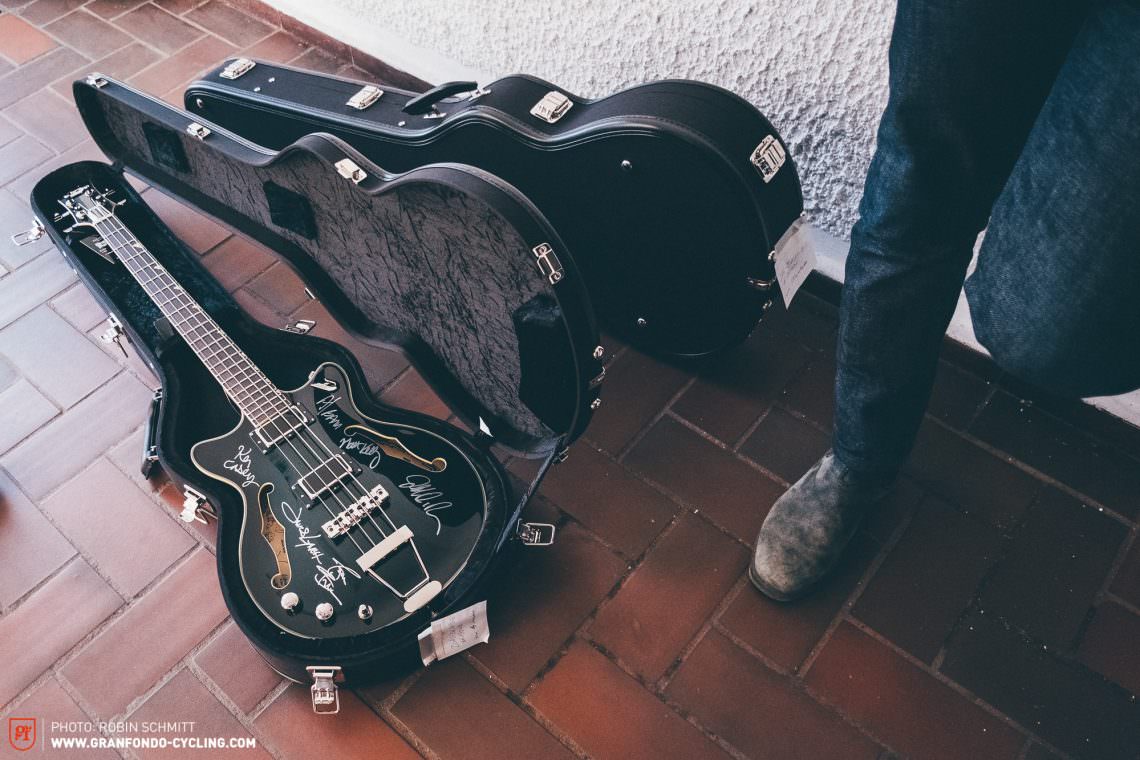
Did you enjoy this article? If so, we would be stoked if you decide to support us with a monthly contribution. By becoming a supporter of GRAN FONDO, you will help secure a sustainable future for high-quality cycling journalism. Click here to learn more.
Words & Photos: Robin Schmitt


